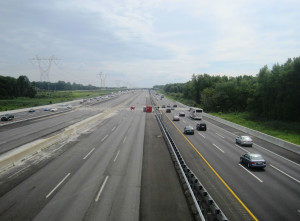The New Jersey Tax Court recently considered whether the New Jersey Turnpike Authority should be considered an alter ego of the State for the purposes of N.J.S.A. 54:4-23.8, which provides an exemption for roll-back taxes if lands are acquired by, among others, a local government unit for “recreation and conservation purposes.” The short answer is no.
 The Facts of the Case
The Facts of the Case
In connection with its project to widen and reconfigure a portion of the highway from interchange 6 to interchange 9, the New Jersey Turnpike Authority obtained permits from the New Jersey Department of Environmental Protection. To satisfy its mitigation obligations under these permits, the Turnpike purchased the “Brookland Mitigation Site” (the Subject) for approximately $4 million.
For tax year 2010, the Subject was assessed as farmland qualified pursuant to the Farmland Assessment Act of 1964 (FA-Act). It was not used for agricultural or horticultural or tree production/woodland management purposes after the Turnpike Authority bought the land in 2010.
The Turnpike maintains that a change in title or ownership of land previously farmland assessed does not trigger a tax rollback if the “new use is exempt.” The new use, according to the Turnpike, is its acquisition of the Subject for mitigation purposes. The exemption, per the Turnpike, is provided by N.J.S.A. 54:4-23.8, which incorporated the “Green Acres” roll-back exemption allowed by N.J.S.A. 13:8C-29(b) (the Garden State Preservation Trust Act or “GSPTA”). The statute provides an exemption for land “acquired by,” inter alia, “the State” or a “local government unit” when the acquisition is for “recreation and conservation purposes.”
The dispute in New Jersey Turnpike Authority v. Township of Monroe centered on whether the Turnpike Authority is “the State.”
The Court’s Decision
While the tax court agreed that the Turnpike is considered an agency or instrumentality of the State, being created in but not of the New Jersey Department of Transportation (NJDOT), it did not go so far as to deem it an alter ego of the state.
In reaching its decision, the court acknowledged that neither the GSPTA nor the FA-Act define “the State” for purposes of the roll-back tax exemption. However, it found that the “general scheme and intent of the GSPTA and its interpretive regulations, do not support an inclusion of the Turnpike within their language, scope and intent.”
The court specifically highlighted that the legislative findings of the GSPTA suggest that the acquisition of lands by “the State” for purposes of the statute was predominantly confined to the NJDEP, noting that the NJDEP is the only State agency mentioned as being authorized to acquire lands for recreation and conservation purposes. The court similarly found that precedent under the FA-Act has also held that the “Turnpike is not equivalent to the State of New Jersey.”
For more information about this case or the legal issues involved, we encourage you to contact a member of Scarinci Hollenbeck’s Government Law Group.
